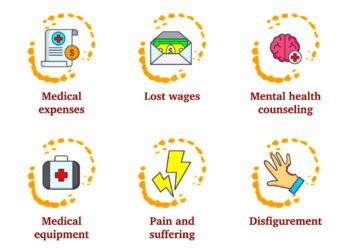Maine Accident Laws and Your Legal Options
Maine accident laws are designed to protect victims and ensure they receive fair compensation for their injuries. If you’ve been in an accident, it’s essential to understand your rights and the laws that apply. In Maine, these laws cover various types of accidents, including car collisions, slips and falls, and workplace injuries. Understanding these laws can help you navigate the legal process more effectively.
Types of Accidents Covered by Maine Law

Maine law covers several types of accidents. Here are some of the most common:
- Car Accidents: These are the most frequent type of accidents in Maine, often resulting from negligent driving.
- Slip and Fall Accidents: Property owners can be held liable if someone gets injured on their premises due to unsafe conditions.
- Workplace Injuries: Employees injured on the job may be entitled to workers’ compensation benefits.
- Motorcycle Accidents: Motorcyclists are at higher risk for severe injuries, and laws protect their rights.
- Bicycle Accidents: Cyclists have the same rights as motorists, and drivers must be cautious around them.
- Pedestrian Accidents: Pedestrians are vulnerable, and Maine laws protect their right to safe passage.
Determining Fault in Maine Accidents
Determining who is at fault in an accident is crucial for pursuing compensation. Maine follows a modified comparative negligence system. This means that:
- If you are found to be less than 50% at fault, you can recover damages.
- Your compensation will be reduced by your percentage of fault.
To establish fault, several factors are considered, including:
- Eyewitness testimonies
- Police reports
- Photographs of the accident scene
- Traffic laws and regulations
Gathering evidence and documentation is essential to support your claim. If there’s shared fault, understanding how it affects your compensation is key to navigating the legal process effectively.
Statute of Limitations for Accident Claims in Maine
In Maine, the statute of limitations sets a time limit for filing an accident claim. This period is critical because it affects your right to seek compensation for injuries. If you wait too long, you may lose your chance to recover damages. Understanding these time limits can help you take action promptly and protect your rights.
For most personal injury claims in Maine, you have six years from the date of the accident to file a lawsuit. However, there are exceptions:
- Motor Vehicle Accidents: The same six-year limit applies.
- Medical Malpractice: You typically have three years from the date of discovery of the injury.
- Claims Against Government Entities: You may need to file a notice within 180 days.
Missing these deadlines can have serious consequences. If you think you have a case, it’s best to consult a lawyer as soon as possible. They can help ensure that you meet all necessary deadlines and navigate the legal process smoothly.
Legal Options for Victims of Accidents
If you’re a victim of an accident in Maine, you have several legal options available to seek compensation. Understanding these choices is crucial for recovering from your injuries and losses. Here’s a rundown of the main avenues you can explore:
- Insurance Claims: Most accidents involve insurance companies. You can file a claim with the at-fault party’s insurance to cover medical expenses, lost wages, and pain and suffering.
- Personal Injury Lawsuits: If the insurance claim doesn’t cover your losses, you may consider filing a lawsuit against the responsible party.
- Workers’ Compensation: If your accident occurred at work, you might be entitled to workers’ compensation benefits, which cover medical bills and lost wages.
- Settlement Negotiations: Often, parties can negotiate a settlement outside of court, which can save time and legal fees.
Consulting with a personal injury attorney can help you understand the best legal options based on your situation and the specifics of your case.
Importance of Gathering Evidence After an Accident
After an accident, gathering evidence is crucial for supporting your claim and proving fault. The stronger your evidence, the better your chances of receiving fair compensation. Here are some key types of evidence to collect:
- Photos: Take pictures of the accident scene, vehicle damage, and any visible injuries.
- Witness Statements: Collect contact information and statements from anyone who saw the accident.
- Police Reports: Request a copy of the police report, as it can provide essential details and an official account of the incident.
- Medical Records: Keep records of your medical treatment and expenses related to the accident.
- Correspondence: Document all communication with insurance companies and other parties involved.
Organizing this evidence can make a significant difference in the outcome of your case. If possible, consult with a legal professional to help you gather and present this information effectively.
How to Choose the Right Attorney for Your Case
Choosing the right attorney for your accident case is a crucial step toward ensuring a successful outcome. With so many options out there, it can feel overwhelming. However, taking the time to find a qualified and experienced lawyer can make a big difference in your case. Here are some tips to help you select the right attorney:
- Specialization: Look for an attorney who specializes in personal injury law. They will have the specific knowledge and experience needed for your case.
- Experience: Check how long they’ve been practicing and how many similar cases they’ve handled. Experienced attorneys often know the ins and outs of the law.
- Reputation: Research online reviews and ask for referrals from friends or family. A good reputation often indicates reliable service.
- Initial Consultation: Many attorneys offer free consultations. Use this opportunity to discuss your case and gauge how comfortable you feel with them.
- Fee Structure: Understand their fee structure. Most personal injury lawyers work on a contingency fee basis, meaning they only get paid if you win your case.
- Communication: Choose an attorney who communicates clearly and promptly. You’ll want someone who keeps you informed throughout the process.
By following these tips, you can find an attorney who will represent your interests effectively and guide you through the legal maze.
Frequently Asked Questions About Maine Accident Laws
Understanding accident laws can be complicated, and many people have similar questions. Here are some frequently asked questions to help clarify common concerns:
- What should I do immediately after an accident? Ensure everyone’s safety, call for medical help, and gather information from the scene.
- How long do I have to file a claim? In most cases, you have six years from the accident date to file a personal injury claim.
- Can I still recover damages if I was partially at fault? Yes, as long as you are less than 50% at fault, you can still recover damages in Maine.
- What types of compensation can I receive? You may receive compensation for medical expenses, lost wages, pain and suffering, and property damage.
- Do I need a lawyer for my accident claim? While it’s not required, having a lawyer can significantly increase your chances of a favorable outcome.
These FAQs can help you better understand your rights and options following an accident in Maine.
Conclusion on Legal Options After an Accident in Maine
Understanding your legal options after an accident in Maine is essential for protecting your rights and securing the compensation you deserve. From knowing the statute of limitations to determining fault, each step plays a vital role in your case. Here’s a quick recap of the key points:
- Be aware of the time limits for filing your claim.
- Explore various legal options, including insurance claims and lawsuits.
- Gather as much evidence as possible to support your case.
- Choose the right attorney who specializes in personal injury law.
Taking proactive steps can significantly impact your recovery journey. Don’t hesitate to seek legal assistance if you need help navigating the process. With the right support, you can focus on healing while ensuring your legal rights are upheld.


